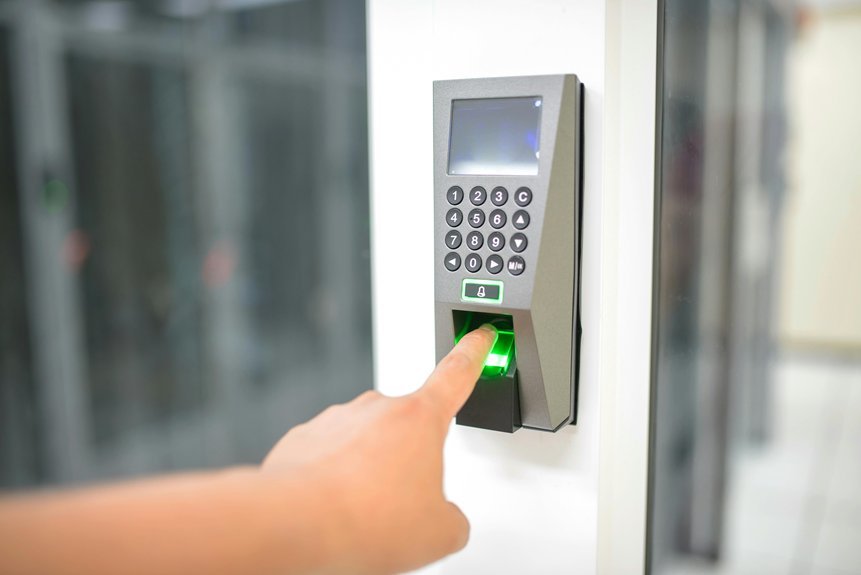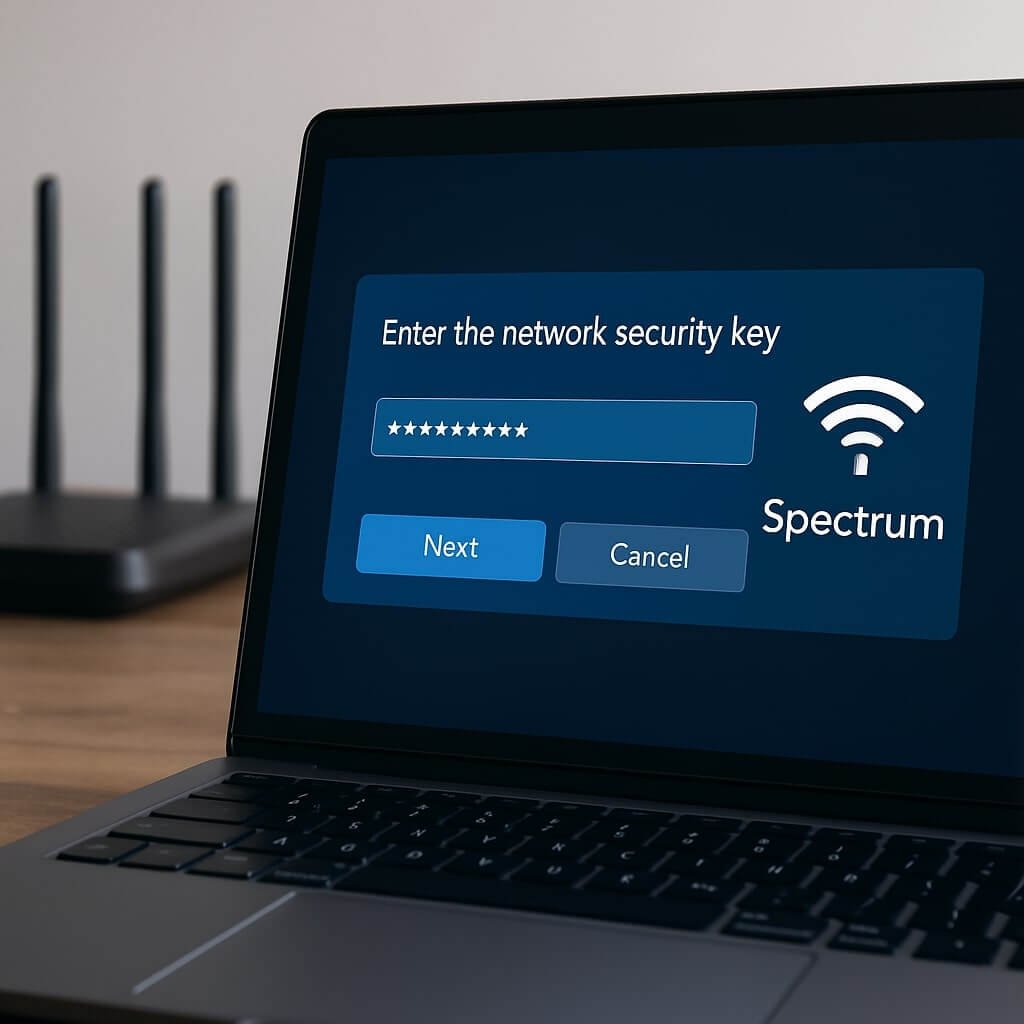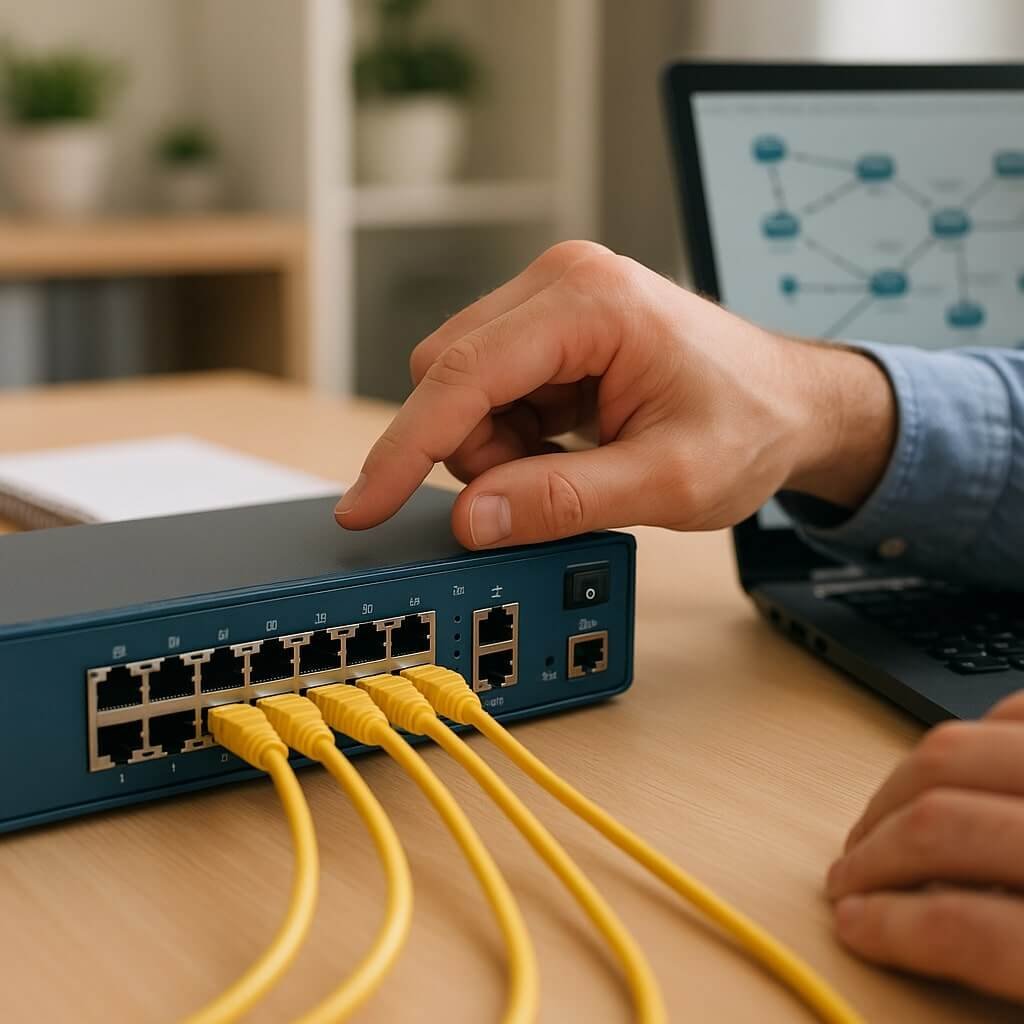When it comes to securing your digital environment, understanding the difference between a network security key and a password is crucial. A network security key safeguards your wireless connections, whereas a password is essential for individual account access. Each serves a distinct purpose, but their effectiveness can vary considerably. Let’s explore how these two elements interact and the implications for your overall security strategy.
Key Takeaways
- Network security keys are unique identifiers for encrypted communication, while passwords are user-defined strings for accessing specific accounts or services.
- Security keys enhance network integrity, whereas passwords protect individual accounts and access.
- Network security keys typically utilize advanced encryption protocols, making them more secure than traditional passwords.
- Weak passwords are vulnerable to attacks, while strong network security keys provide higher protection against unauthorized access.
- Network security keys are essential for secure Wi-Fi connections, while passwords are crucial for personal device security and online accounts.
Understanding Network Security Keys
Network security keys play an essential role in safeguarding your wireless connections. These keys enable network encryption, guaranteeing that data transmitted over your network remains confidential and secure.
When you connect to a wireless network, the encryption process uses these keys to convert your data into an unreadable format, preventing unauthorized access. Without a proper network security key, your data protection efforts are severely compromised, leaving your sensitive information vulnerable to interception.
Understanding how network security keys function is vital for maintaining the integrity of your wireless communications. By employing strong, unique keys, you enhance your network’s security posture and minimize potential threats.
Understanding network security keys is crucial for safeguarding wireless communications and enhancing overall network security.
Always prioritize the use of robust network security keys to guarantee the best data protection for your devices and personal information.
What Are Passwords?
Passwords serve as the primary line of defense for securing your digital accounts and sensitive information. Their effectiveness hinges on password complexity, which involves using a mix of letters, numbers, and symbols to create passwords that are harder to guess or crack. A strong password often exceeds eight characters and avoids common phrases or personal information.
To optimize security, you must also employ password management techniques, such as using a password manager to generate and store unique passwords for each account. This minimizes the risk of password reuse, which can lead to vulnerabilities.
Regularly updating your passwords and using two-factor authentication can further enhance your security posture, ensuring your sensitive data remains protected against unauthorized access.
Key Differences Between Network Security Keys and Passwords
Understanding the key differences between network security keys and passwords is essential for effective network protection.
You’ll find that their definitions and purposes vary greatly, impacting their security strength and ideal usage scenarios.
Definition and Purpose
In the domain of cybersecurity, distinguishing between a network security key and a password is essential for effective protection of your digital assets.
A network security key serves as a critical component within security protocols, acting as a unique identifier for encrypted communication on your network. It guarantees that only authorized users can access the network by leveraging robust encryption methods to safeguard data.
Conversely, a password is a user-defined string that grants access to specific accounts or services, often requiring periodic updates to maintain security.
While both serve to protect information, a network security key is integral to network integrity, whereas a password primarily secures individual user accounts.
Understanding their definitions and purposes can enhance your overall security framework.
Security Strength Comparison
While both network security keys and passwords serve to protect access to digital systems, their security strength and implementation differ considerably.
Network security keys typically utilize advanced security protocols and stronger encryption standards, making them more resilient against unauthorized access. They often consist of longer, complex strings that are harder to crack compared to traditional passwords.
On the other hand, passwords can vary greatly in strength, depending on user choice and practices. Weak passwords are susceptible to brute force attacks and social engineering tactics.
In contrast, network security keys are designed for robust security environments, ensuring that the encryption standards employed provide a higher level of protection against potential threats.
This distinction is essential for maintaining secure digital systems.
Usage Scenarios Explained
When choosing between network security keys and passwords, it’s important to evaluate their specific usage scenarios.
Network security keys are ideal for environments requiring robust authentication, offering seamless network access while enhancing security protocols. They’re particularly effective in corporate settings, where multiple users access sensitive information and the risk of unauthorized access is high.
On the other hand, passwords are commonly used for personal devices and less critical applications. They provide a straightforward method for access but can be vulnerable to phishing and brute-force attacks.
For scenarios emphasizing higher security, such as financial transactions or data protection, opting for network security keys over traditional passwords is advisable to mitigate risks and bolster overall security.
When to Use a Network Security Key
Using a network security key is essential whenever you connect to a secure Wi-Fi network, especially in environments where data integrity and confidentiality are paramount.
It acts as a critical layer of access control, ensuring that only authorized devices can join the network. In corporate settings or public hotspots, using a network security key helps prevent unauthorized access, protecting sensitive information from potential breaches.
When connecting to a home network, it’s equally important to employ a network security key to maintain robust network security. By using strong, unique keys, you enhance your defense against cyber threats, ensuring that your data remains secure and inaccessible to intruders.
Prioritize this measure to safeguard your digital communications effectively.
When to Use a Password
You should use a password when securing personal devices, as it provides a straightforward method to restrict access.
For online accounts, a strong password is essential to protect sensitive information from unauthorized users.
Additionally, when granting temporary network access, a password can efficiently manage who connects while maintaining overall security.
Personal Device Security
While maneuvering through the complexities of personal device security, understanding when to implement a password becomes vital. Passwords serve as a fundamental layer of protection, especially when device encryption isn’t enough.
For instance, if your device lacks advanced biometric authentication—like fingerprint or facial recognition—using a strong password is essential. In situations where you’re accessing sensitive data or connecting to public Wi-Fi, a password adds an extra barrier against unauthorized access.
Additionally, if you share your device with others, a password guarantees your personal information remains secure. Always prioritize passwords in instances where biometric measures may fail or aren’t available, fortifying your device against potential security breaches.
Online Account Access
When accessing online accounts, the implementation of a password becomes a critical factor in maintaining security. A strong password acts as your first line of defense against unauthorized access.
To enhance this security, consider employing two-factor authentication (2FA). This requires a second verification step, such as a text message or authentication app, greatly reducing the risk of account breaches.
In addition to protecting your account, a password is essential for account recovery. When you forget your login details, the recovery process often relies on your password or security questions.
As a result, verify your password is unique and complex, combining letters, numbers, and symbols. Regularly update it to safeguard against evolving threats and verify your online presence remains secure.
Temporary Network Access
Many organizations implement temporary network access protocols to facilitate guest connectivity, making it vital to understand when a password is necessary.
When granting temporary access to network guests, passwords serve as a fundamental security measure. They help guarantee that only authorized users can connect, protecting sensitive data and maintaining network integrity.
Utilize unique, time-limited passwords for short-term access, which can be easily changed or revoked. This approach minimizes the risk associated with unauthorized users lingering on the network after their visit.
Additionally, consider implementing access controls that automatically expire after a set duration, enhancing security further.
Best Practices for Securing Your Information
To effectively secure your information, you must adopt an extensive set of best practices that address various aspects of network security.
Start by implementing data encryption for sensitive files, ensuring that unauthorized access is minimized. Use strong, unique passwords for each account and change them regularly. Additionally, enable two-factor authentication whenever possible for an extra layer of protection.
Regularly perform secure backups of your data to prevent loss in case of a breach or hardware failure. Keep your software and operating systems updated to patch vulnerabilities.
Finally, educate yourself about phishing attacks and other social engineering tactics to recognize and avoid them. By following these practices, you can greatly enhance your information security and reduce potential risks.
Conclusion
In conclusion, while both network security keys and passwords serve to protect information, they do so in distinct ways. A network security key secures wireless connections through encryption, whereas a password safeguards individual accounts. Understanding these differences helps you choose the right method for securing your data. Always prioritize strong, complex keys and passwords to enhance your security posture, and stay vigilant against potential threats to your network and personal accounts.






